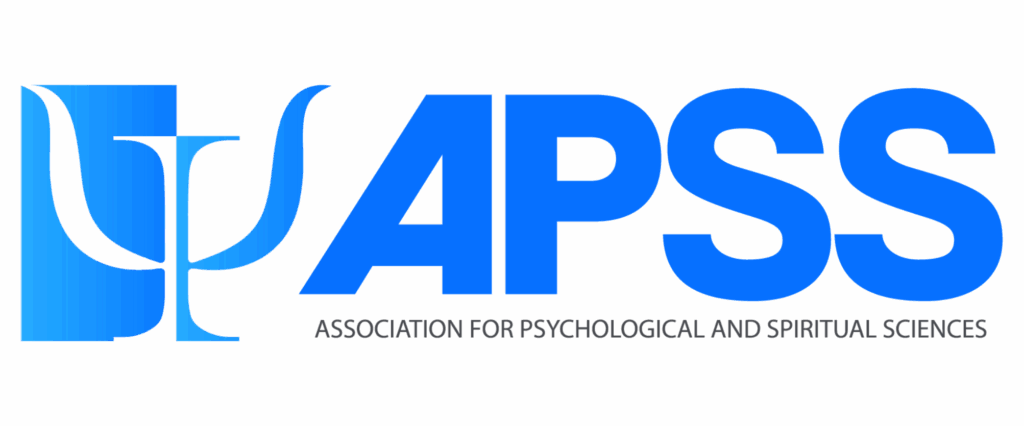Epistemic Resistance, Ontological Insecurity, and the Defensive Function of Humor
In September, under the umbrella of APSS, we held a multidisciplinary gathering to explore the phenomenon of denial and ridicule in response to new knowledge. Participants included schema therapists, CBT practitioners, Lacanian thinkers, Sufi scholars, and philosophers. Drawing from both classical texts and contemporary psychological literature, we focused on a central question:
Why do we deny or ridicule new knowledge when we encounter it?
Confronting new knowledge can trigger a psychodynamic rupture. When information threatens an individual’s existing meaning system, a psychological defense mechanism is activated: denial. Jonathan Scholl describes denial as “a protective wall that postpones self-confrontation” (Godman, 2023). This defense becomes especially pronounced in the face of traumatic or identity-shaking information. Roy Baumeister and Costa (2017) argue that denial is not a singular mechanism but a class of defenses that includes rationalization, minimization, and disavowal. This reflects the layered nature of the psyche’s effort to preserve its integrity.
According to CBT, individuals perceive the world through cognitive schemas, which include both emotional and belief-based components. When new information contradicts these schemas, cognitive dissonance arises. To protect their existing belief system, individuals may resort to denial. In this context, denial functions as a “psychological immune system,” while ridicule becomes its expressive face.
Schema therapy views the body as a field of knowledge. New information creates not only mental but also somatic resonance. If the body is not ready to receive this resonance, denial and ridicule manifest as a form of “bodily closure.” Openness to knowledge requires not only mental but also physical readiness.
From the perspective of ontological insecurity, Heidegger’s concept of “Seinsangst” (being-anxiety) becomes relevant. When new knowledge clashes with one’s existential foundation, denial emerges as an ontological defense. Lacan’s notion of “le réel” marks the point where knowledge disrupts the symbolic order. Ridicule, in this case, is an ironic defense against this disruption. Humor functions not as escape, but as a shield.
The rejection or ridicule of new knowledge is not always about the knowledge itself, it may reflect the timing of its arrival. Classical thinkers suggest that knowledge has its own season. Al-Ghazālī writes, “Knowledge does not enter until the vessel of the heart is full.” Ibn ‘Arabī adds, “Truth is not seen with the eyes, but with the state.” These insights remind us that knowledge is not merely a cognitive event but a transformative process. Denial and ridicule may signal that the knowledge has arrived prematurely. This calls for epistemic humility: not everyone can internalize everything at once.
If we look at the concept through ancient scriptures, the Qur’an states:
“Whenever a sign comes to them from their Lord, they turn away from it. Indeed, they denied the truth when it came to them. But soon they will receive news of what they used to ridicule.” (Qur’an, En’âm 6:4–5)
The forms of denial and ridicule described in these verses share structural similarities with psychodynamic epistemic resistance, though they differ in context. In theological terms, denial is a collective defense: society resists the transformative power of divine revelation by deploying ridicule and dismissal. This aligns with what social psychology calls “ridicule as social control” (Billig, 2005).
Theologically rooted denial often involves arrogance (istikbār) and envy (ḥasad), which also function as psychological drivers of resistance. In En’âm, those who deny the message often do so by elevating themselves and belittling the messenger. These dynamics mirror psychodynamic denial: when threatened, individuals may adopt a posture of superiority or discredit the source of knowledge out of envy. This corresponds to what modern psychology terms “approach-oriented arrogance,” where individuals devalue opposing information by asserting their own superiority (Xu & Gong, 2025).
Envy, too, plays a role. As Sara Protasi explains in The Philosophy of Envy, envy is not only a moral emotion but also a cognitive defense. When individuals feel inadequate, they may resist knowledge possessed by others (Protasi, 2021). Thus, denial becomes not only cognitive but also emotional and motivational.
In both psychodynamic and theological denial, ridicule serves as a strategy to create emotional distance from threatening knowledge. However, while the denial in En’âm operates at a sociological and ideological level, psychodynamic resistance manifests as an internal, individual defense.
Epistemic resistance is not merely a personal reaction; it operates across cognitive, emotional, identity-based, motivational, and institutional dimensions. Below is a summary of this multidimensional anatomy:
| Type of Resistance | Description |
| Psychodynamic | Denial, rationalization, minimization in response to threatening knowledge |
| Cognitive | Confirmation bias, selective information processing |
| Emotional | Avoidance triggered by fear, anger, shame |
| Identity-Based | Rejection of knowledge that threatens cultural or social identity |
| Motivational | Avoidance of behavioral change required by accepting new knowledge |
| Lack of Epistemic Humility | Overconfidence, refusal to acknowledge limits of one’s knowledge |
| Institutional/Structural | Systemic barriers to accessing or producing knowledge |
This model allows us to read both the collective denial in En’âm and the individual defenses in modern psychology within a shared framework.
Recognizing Resistance in Everyday Life
Imagine encountering new information, perhaps a friend says, “Your behavior might be hurting others,” or you read a news story that contradicts your values. Your mind may instantly activate a defense: “That can’t be true,” “They misunderstood me,” or “This is exaggerated.” These reactions are everyday expressions of epistemic resistance and psychodynamic defense.
One practical tool to recognize and transform these responses is the Epistemic Journal. This reflective practice helps individuals observe their reactions to new knowledge and identify underlying defense mechanisms.
Write down these three questions daily:
- What new knowledge did I encounter today?
- What was my initial reaction (denial, ridicule, avoidance)?
- What emotion was my reaction protecting (anxiety, shame, anger, uncertainty)?
This exercise supports the development of intellectual humility and helps individuals become aware of their cognitive and emotional defenses (Hoyle et al., 2016; Porter & Schumann, 2018). Research on intellectual humility shows that acknowledging the limits of one’s knowledge enhances both learning motivation and interpersonal empathy (Krumrei-Mancuso & Rouse, 2016).
Author: Beyza Aydın, MSc in Clinical Psychology
References
-
Billig, M. (2005). Laughter and ridicule: Towards a social critique of humour. SAGE Publications.
-
Costa, R. M. (2017). Denial (Defense Mechanism). In V. Zeigler-Hill & T. K. Shackelford (Eds.), Encyclopedia of Personality and Individual Differences (pp. 1–3). Springer. https://doi.org/10.1007/978-3-319-28099-8_1373-1
-
Godman, H. (2023, July 26). Denial: How it hurts, how it helps, and how to cope. Harvard Health Publishing. https://www.health.harvard.edu/blog/denial-how-it-hurts-how-it-helps-and-how-to-cope-202307262958
-
Hoyle, R. H., Davisson, E. K., & Diebels, K. J. (2016). The psychology of intellectual humility. In C. R. Agroskin, J. P. Forgas, & K. Fiedler (Eds.), Social cognition and communication (pp. 205–222). Psychology Press.
-
Krumrei-Mancuso, E. J., & Rouse, S. V. (2016). The development and validation of the Intellectual Humility Scale. Personality and Individual Differences, 84, 165–171. https://doi.org/10.1016/j.paid.2015.12.011
-
Kunda, Z. (1990). The case for motivated reasoning. Psychological Bulletin, 108(3), 480–498. https://doi.org/10.1037/0033-2909.108.3.480
-
Kur’an. (n.d.). Kur’an-ı Kerim meali. Diyanet İşleri Başkanlığı. https://kuran.diyanet.gov.tr
-
Medina, J. (2013). The epistemology of resistance: Gender and racial oppression, epistemic injustice, and resistant imaginations. Oxford University Press.
-
Nickerson, R. S. (1998). Confirmation bias: A ubiquitous phenomenon in many guises. Review of General Psychology, 2(2), 175–220. https://doi.org/10.1037/1089-2680.2.2.175
-
Porter, T., & Schumann, K. (2018). Intellectual humility and openness to the opposing view. Self and Identity, 17(2), 139–162. https://doi.org/10.1080/15298868.2017.1361861
-
Protasi, S. (2021). The philosophy of envy. Cambridge University Press. https://doi.org/10.1017/9781009007023
-
Xu, Y., & Gong, H. (2025). The dual nature of arrogance: From an approach-avoidance perspective. Humanities and Social Sciences Communications, 11(1). https://www.nature.com/articles/s41599-025-05425-3





